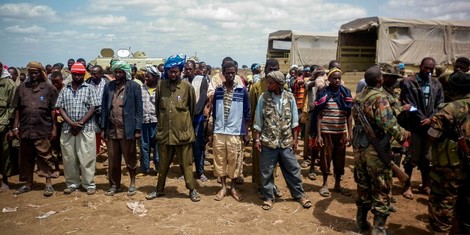Your podcast discovery platform
Curious minds select the most fascinating podcasts from around the world. Discover hand-piqd audio recommendations on your favorite topics.

piqer for: Globalization and politics Global finds
Freelance journalist based in Istanbul. Keeping an eye on Turkish politics and development.
What Factors Lead People To Extremism?
Each of us is willing to fight for an idea. The question is, to what extent?
In this piece for Peace Insight, Christine Mutisya takes a deeper look at the similarities among violent extremist groups, and the key factors to counter violent extremism.
Lack of faith in governing authorities, most often due to human rights violations and poor governance, is something many leaders of extremist groups have in common. These leaders take it upon themselves to restore order and to protect the community. Their followers are often people who suffered human rights violations, and who decide to join a group that understands them and offers them 'justice'.
After every single terrorist attack in Europe, media have wondered why and how the terrorists were radicalized. The key is a sense of belonging and purpose and, of course, a strong network. For example, many European jihadists who traveled to Syria in the first years of the war were recruited under the premises of humanitarian assistance.
In the last year, many governments have expressed their concerns and came out with deradicalization programmes. But the solutions posed by Mutisya focus on the origins of the problem:
- Provide an alternative, through locally led peacebuilding projects, paying special attention to the more vulnerable groups.
- Offer an alternative ideology to extremism through education.
- Use the same platforms to send a counter-narrative.
A very interesting and needed analysis on how to solve one of the biggest problems of our time. Maybe, if governments and international organizations listened more carefully to those witnessing the consequences of violent extremism on the ground, we would avoid many unfortunate events.
Stay up to date – with a newsletter from your channel on Global finds.
